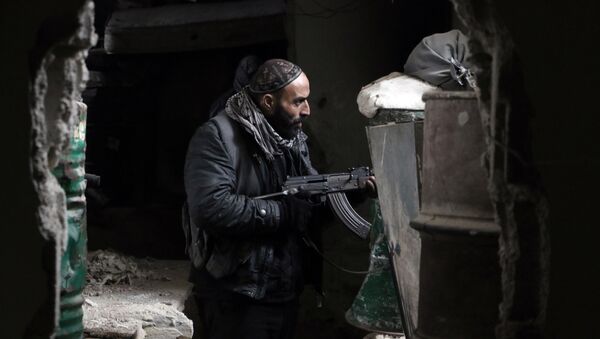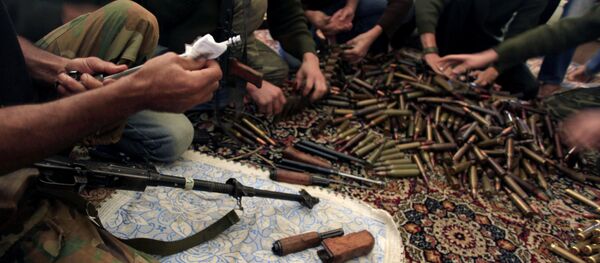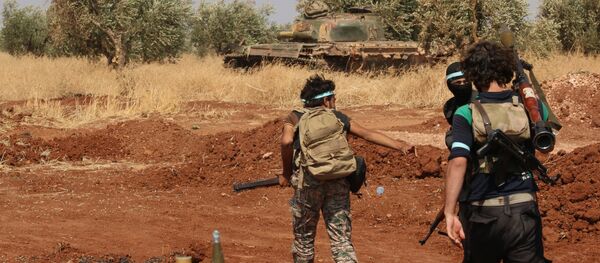The report, investigating the crimes against the civilian population of armed groups operating in Aleppo, Idlib and elsewhere in northern Syria, details "a chilling wave of abductions, torture and summary killings" by groups including Ahrar al-Sham, the Free Syrian Army, Nusra Front and the Nour al-Din Zenki movement.
Speaking to Sputnik France, Nina Walch, Armed Conflict Coordinator at Amnesty, offered her suggestions on how to prevent future human rights violations from taking place.
The report, Sputnik France's interviewer recalled, called for the UN Security Council to impose targeted sanctions on the leaders of the armed groups which commit war crimes, but also admitted that countries including Qatar, Saudi Arabia, Turkey and the United States support these groups.
"This is true," Walch said. "Therefore, the states which make up the International Syria Support Group (ISSG) must put pressure on these armed groups, so that they stop their violence, and respect the Universal Declaration of Human Rights. It is also necessary to demand that the supply of arms be stopped to those groups mentioned in the report which commit war crimes."
Asked what it would actually take to effectively put pressure on these countries, Walch reiterated that "given that all these groups work together, those who support them, such as Saudi Arabia, Turkey, Qatar, the United States, but also Russia should be actively involved and pose questions regarding detentions, torture and kidnappings."
"So far in Geneva…the ceasefire and the humanitarian aspect were the center of discussions, while the topic of detentions, torture and abductions was neglected. I think that if all the countries in the ISSG, including Russia and of course, the United States, join forces and put pressure on all parties to the conflict, this will yield results," she added.
Asked by Sputnik whether it is morally justifiable to conduct negotiations with groups which commit the types of crimes outlined in the report, Walch insisted that the answer to that question was yes. "I think that it is possible, because they are acting on the ground, and in the future they will play an important role in the future of Syria. We cannot but take them into account; these groups also include Syrians. Not all of them commit war crimes. It is necessary to ensure their participation in the negotiations, without forgetting the crimes committed."
With Jaish al-Fatah, a coalition of Islamist rebel groups including Ahrar al-Sham, Nusra Front and other rebel factions featured prominently in Amnesty's report, Sputnik France asked intelligence expert Alain Rodier to clarify the coalition's strategy and goals.
"Jaish al-Fatah is a coalition of Salafist movements, mainly jihadist, which aims to retain control of the northwestern Syrian province of Idlib, and if possible to win Aleppo," the former intelligence officer noted. "This is its short-term military goal. The coalition includes various kinds of Salafist jihadists, the most famous of which is the Nusra Front, an armed wing of Al-Qaeda in Syria."
"The coalition includes several dominant groups, but also small local groups which have similar names or which change their names regularly," Rodier added. "In the West, we imagine an organized structure, but in reality the situation on the ground is constantly changing…"
"For this reason, the coalition sometimes acts against Islamic State [Daesh]. But it also does not rule out agreements with local religious leaders…That is, there is no single command, headed by one leader, no hierarchical structure. In other words, it is a 'merry mess', where the interests of some very often conflict with those of others, even if officially they remain allies," the expert concluded.






